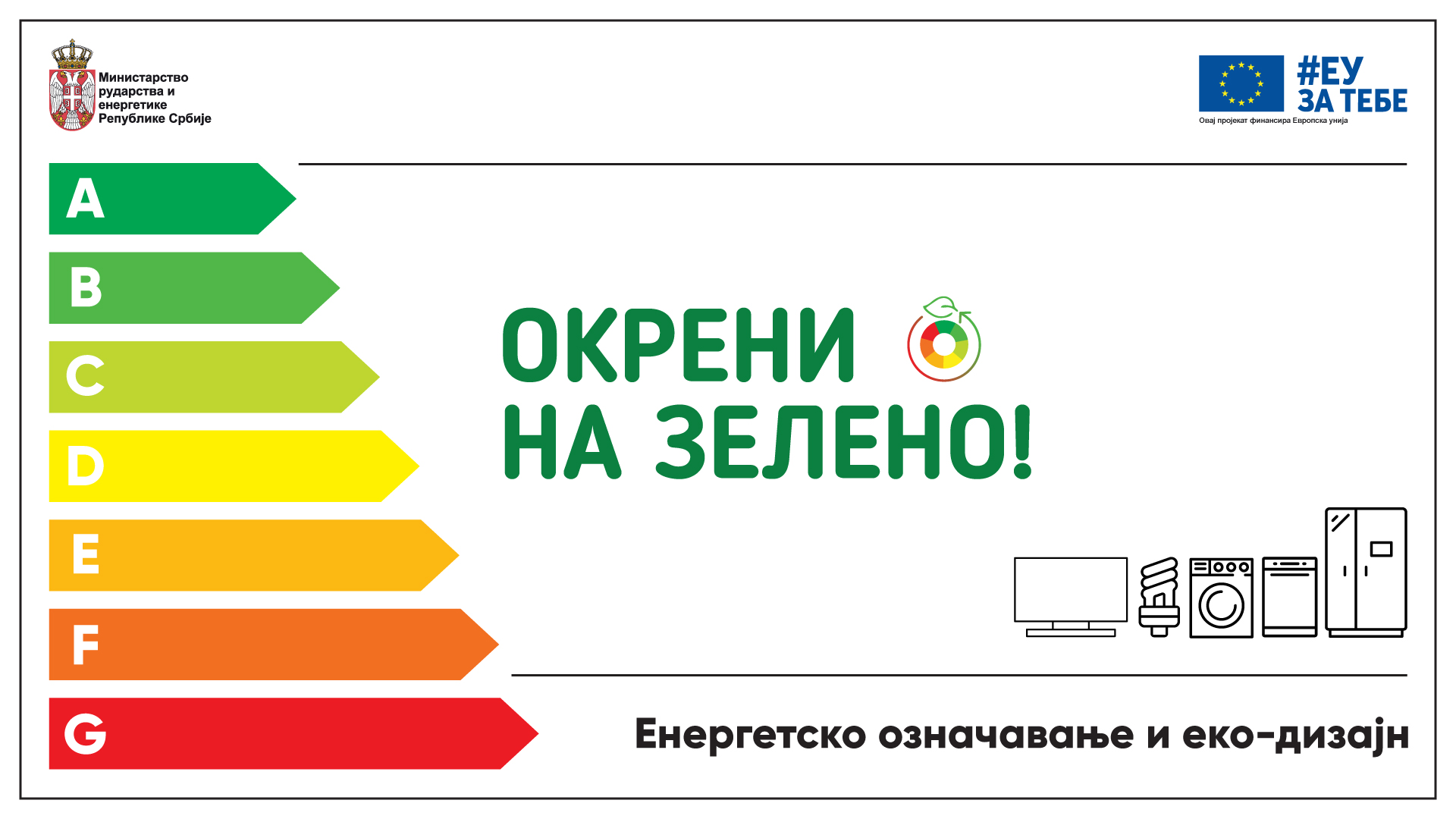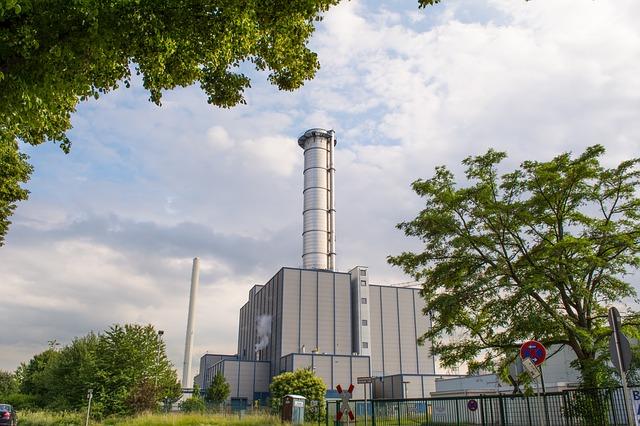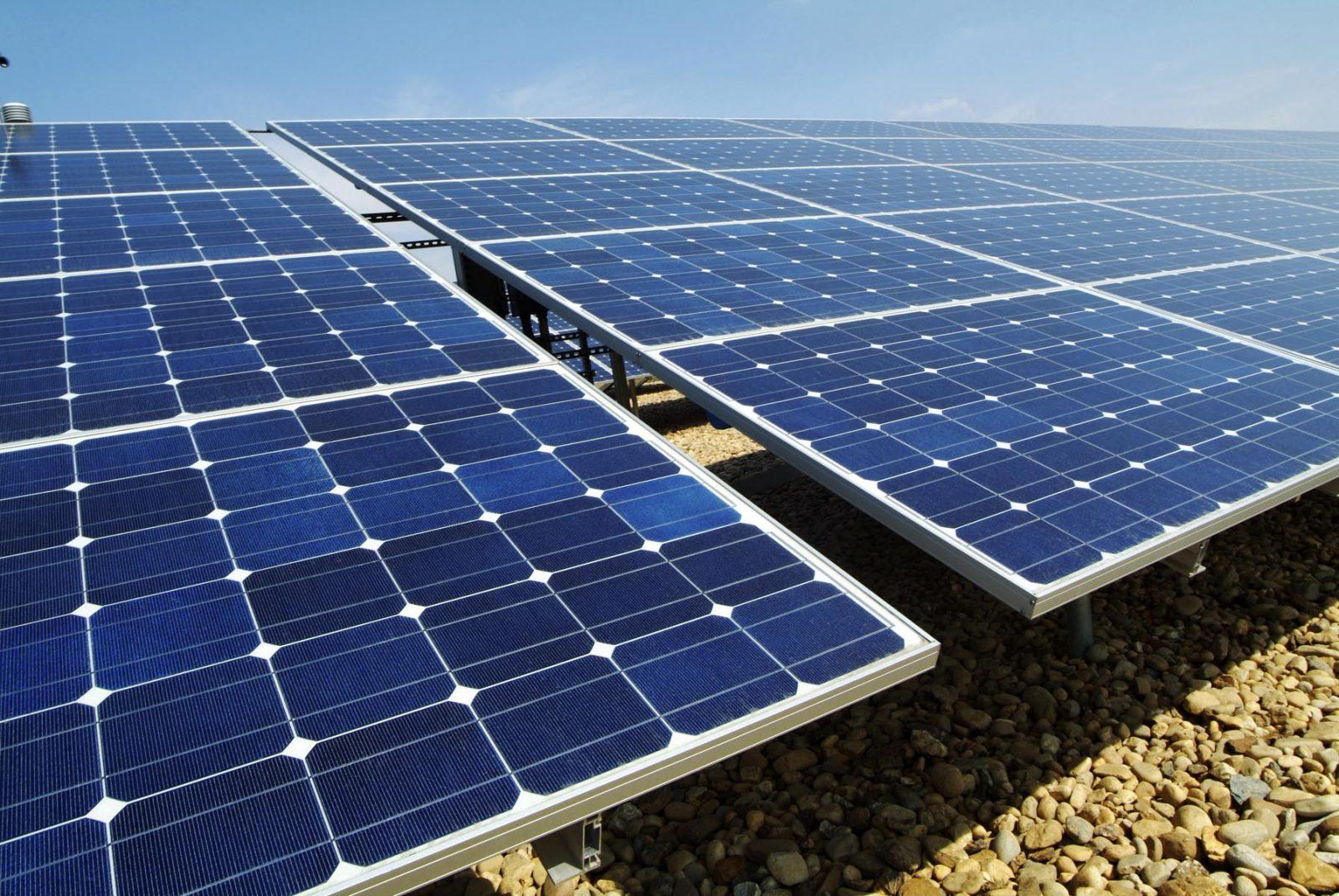Interview with Bernard Gindroz, EU4ELED Team Leader, for portal BIZLIFE.RS
Reducing energy consumption, its use from renewable sources, but also the rise in energy prices around the world, are topics that have been moving the public in recent months. Is cheap electricity a matter of the past for the whole world and how much more will we pay for more and more frequent energy crises in the future?
Serbia considers energy efficiency to be a long-term goal, and that is the way to ensure the consumption of the minimum necessary amount of energy for any purpose. We talked about how to reduce energy consumption, from the household to industry and the economy, with the Team Leader of the project EU for Energy Labelling and Eco-design of Products Bernard Gindroz, who was also working for the French Environment and Energy Management Agency (ADEME), advising and supporting implementation of national strategies. Gindroz spoke for the BIZLife portal about the project he is leading, about Serbia’s goals when it comes to energy efficiency, but also about the use of the increasingly mentioned nuclear energy.
Serbia is on a serious path to reducing energy consumption
- Serbia has set a long-term goal of reducing energy consumption by 40% by 2030. What are your forecasts when it comes to that and is Serbia on the right track? How can this be encouraged, do you have any recommendations?
Serbia has made the right decision and set ambitious strategies that will serve the entire country and its citizens. Indeed, there is a clear need to reduce dependence on other parts of the world where there are certain geopolitical problems, as well as to reconsider our “autonomy”, where we are less vulnerable in the event of an energy and / or financial crisis.
Serbia considers energy efficiency to be the basic postulate, and that is the way to ensure the consumption of the minimum necessary amount of energy for any purpose. This has a financial impact, not only at the state level, but also at the level of every citizen, because they will spend less, and thus pay less.
Another important sector concerns the thermal insulation of buildings, because it is very energy demanding, and has a huge potential for energy savings. Serbia has an appropriate strategy for the reconstruction of low energy efficiency buildings with a good overview of the main sectors to consider. Thermal insulation of buildings has a direct impact on energy consumption, and thus on the electricity bill of each inhabitant of the building. Savings in heating and cooling can be up to 70% of the total consumption of the entire building, which is a very significant reduction.
- There is an energy crisis in Serbia, which is related to the reduced production of electricity, oil derivatives are becoming more expensive, as well as gas. The situation is similar throughout Europe and the world. Has the time of cheap energy passed and do you have a recommendation of what strategy for countries, including Serbia, to take in such circumstances?
Yes, the time of cheap electricity has passed; we are facing geopolitical crises, depletion of resources, taxation of carbon emissions to mitigate climate change, etc. In such situations, optimising consumption is the best and most efficient way to limit all impacts, especially financial, as well as the use of renewable energy sources (hydro-power potential of the sun and wind). Pressures on the energy system will not ease in the coming decades.

Citizens make change possible
- The European Union is implementing the project EU for Energy Labelling and Eco-Design of Products in Serbia. Research shows that the majority of Serbian citizens (68%) think that they cannot contribute more to energy efficiency through their engagement, even though citizens are the largest consumers of energy (more than a third). How is it possible to influence the change of consumer consciousness?
First of all, it is the citizens who make change possible. But you are right, citizens are not aware that they have the power to change things. We need to define their role, recognize their actions and encourage everyone to continue working to save electricity, on a personal level, as this makes a key contribution to mitigating climate change and limiting our national dependence on electricity supply.
- How can education about energy classes worn by home appliances help achieve that goal, why is it important?
High-end energy efficiency home appliances allow people to consume less than half of their energy while operating/using these appliances. It is very important to educate them about the benefits of high-end energy efficiency products. Saving energy also means saving money. However, high-end energy efficiency products are generally more expensive than lower-end ones, and we need to explain/educate people to think about the benefits they will have throughout the life of the device. It is true that you pay a little more when buying a device, but the real return on investment is achieved during its use. This is especially important when the price of electricity is rising, and/or when we are facing an energy and/ or economic crisis.
Training home appliance vendors to give their customers the right information is also extremely important, as it will give everyone all the information they need to make a decision. Sales training is an important task of the project we are launching in support of the eco-design and energy labelling directives. The trainings will start in the coming weeks.

The energy sector is at the top of the list with the highest pollution
- Belgrade and all major cities in Serbia are increasingly on the list of the most polluted in the world, which is often blamed on coal-fired power plants. How do you assess the amount of harmful gases in Serbia and what should change?
The energy sector is at the top of the list of sectors with the highest pollution, ahead of traffic. Demographic development over the last two centuries has relied heavily on the burning of fossil fuels, but that progress has come at a price. Oil, gas, and especially coal emit huge amounts of harmful substances – including carbon – into our atmosphere, which seriously affects global warming. Their processing, refining and combustion also lead to water and soil pollution, which affects our health.
In order to minimize the risk, there is a need to switch to high energy efficiency products and processes, to produce energy from renewable sources, as well as to introduce new ways of consumption. For example, the circular economy deals with such routes, using alternative means of transport, as well as using public transport whenever possible.
- Serbia plans to increase the share of energy from renewable sources, and on the other hand, there is more and more talk about the possibility of lifting the moratorium on the construction of a nuclear power plant. What are Serbia’s prospects when it comes to nuclear energy and how would that affect our economy, environment, energy balance?
It is a political decision that is not easy to make. Indeed, there is a need to ensure a sustainable and sustainable supply of energy to all citizens, which means installing capacity to provide the base load, while, at the same time, installing capacity that is flexible and reactive enough to meet residual demand that varies during of the day. In this context, there is a need to carefully balance energy needs, decarbonisation of electricity production and environmental impact. However, it is necessary to take into account the extensive and powerful experience we have, especially on the European continent, as well as clear and “harmonized” parameters, in the transition from today’s situation to the future of our national energy supply capacities.

Rational use of electricity is becoming the main driver
- You were working in the French Environment and Energy Management Agency, advising and implementing national strategies, can you tell us in relation to that time how the approach to energy issues in Europe changed? We have Germany, which has radically turned its back on nuclear energy, and France, which continues to use that type of energy on a large scale. On the other hand, we have Russia’s influence when it comes to gas and oil. How much is politics in everything and is that why taxpayers and electricity buyers pay more for energy?
Things are not so simple, except that one of the key priorities when developing new capacities for electricity production was to ensure the supply of every citizen, every industry and to anticipate demographic development and human well-being.
We must not forget the energy crisis of the 1970s, which occurred when Western countries, especially the United States, Canada, Western Europe, Australia and New Zealand, faced significant oil shortages, as well as soaring prices… Crisis has led to stagnant economic growth in many countries as oil prices have risen. In this context, France has decided to develop nuclear power plants in response to the crisis, expecting renewed prosperity and competitiveness. So, to cut a long story short, we can never separate decisions from context, geopolitical context at a given moment. However, we must keep in mind the great responsibility of every government to ensure – among other things – access to electricity for all its citizens, as well as competitiveness and prosperity, which, in turn, will benefit everyone.
With this in mind, it should be said that climate change has become a major driver of our development and requires urgent political engagement. In this sense, in the field of electricity, the first measure is to reduce consumption while maintaining the same level (including quality) of services and living standards. In this context, the rational use of electricity becomes the main driver. Optimization of industrial processes, development of high-class energy efficiency products, then elimination of the worst from the market, as well as the transition to ambitious building insulation programs are some of the main measures that are being implemented.
All this development, which benefits everyone, requires strong and ambitious political engagement. Politics plays the most important role, and even if people think that the consequences of their decisions are not immediately visible, we must all look to the future, we must not only look at the short-term perspective, but we must consider the long-term benefits for us, our children and our planet. . This is the reason why political decisions are often unpopular, but communication and awareness-raising campaigns can definitely contribute to more cooperative and proactive actions of all people, and thus citizen participation in dialogue and decision-making, supporting long-term strategies and continuity in political strategies.
Photos: EU4ELED, Pixabay